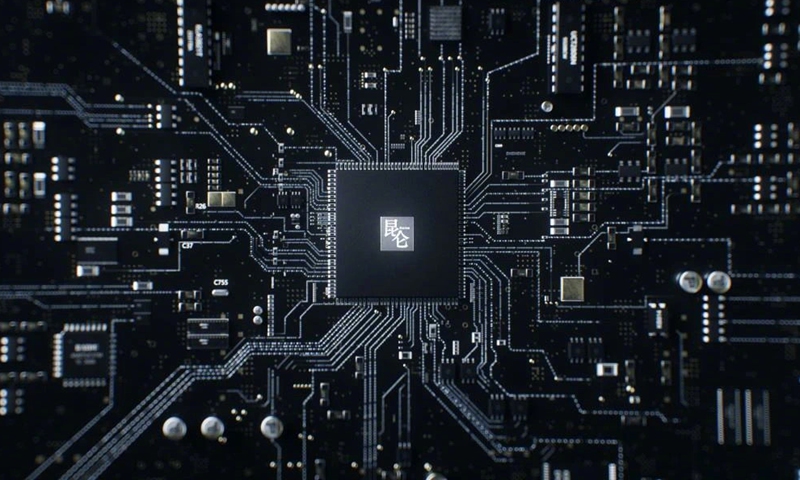Chinese tech giant Baidu spins off $2 billion AI chip unit, gears up for homegrown production amid fierce competition

Kunlun Chip
Chinese search giant Baidu Inc has confirmed that its artificial intelligence (AI) chip unit Kunlun has been spun off as an independent company with a valuation of 13 billion yuan ($2 billion), underscoring the Chinese internet giant's ambition in developing and commercializing its in-house chipsets amid growing industry competition.
Ouyang Jian, the chief architect of Baidu chip, will become its CEO. Baidu Kunlun completed its first round of funding and reached a valuation of $2 billion in April, according to Baidu's earning report of the first quarter of 2021. The investment was led by companies including China Pinnacle Equity Management, IDG Capital, and Legend Capital, the paper.cn reported.
Spinning off as an independent company, Kunlun could win more funds and gain more flexibility in its operation, Ma Jihua, a senior tech industry analyst based in Beijing, told the Global Times on Saturday.
The move could also reduce the risks for Baidu as the development of the new chip business is still facing uncertainty, Ma said.
Shares of Baidu on Friday climbed 4.04 percent to $202.64 per share, continuing a strong gain in recent days.
Kunlun has a registered capital of 16.61 million yuan and Baidu is its majority shareholder, holding approximately 76 percent of the shares, according to the public information platform tianyancha.
Kunlun chips are designed to optimize AI workload and improve cloud cost structure. The project was first announced by Baidu CEO Robin Li at Baidu AI Developer Conference in 2018. It can be widely applied in scenarios such as computer vision and natural language processing.
The first generation of Kunlun chips has seen the mass production in early 2020. The second generation with the performance of three times higher than that of the first generation, will be mass produced in the second half of 2021, according to media reports.
Chips, which play a crucial role in the Internet of Things era, have become a new focus of competition for China's technology giants. The competition has intensified amid the recent global shortage of chips and the US restriction on chip supplies to Chinese companies, according to industry experts.
AI chips are important for fields including unmanned vehicles and cloud computing servers. The industry faces significant growth opportunities in the future, Ma said.
Global Times
